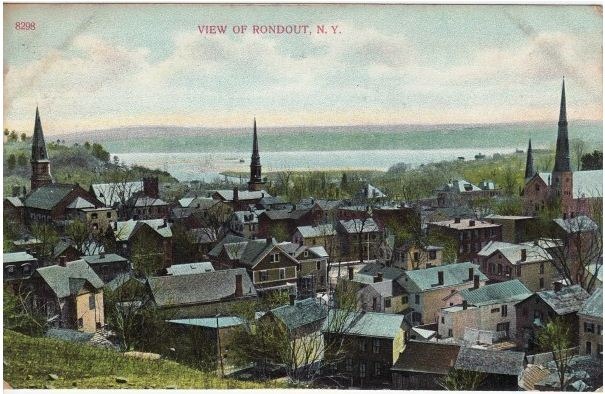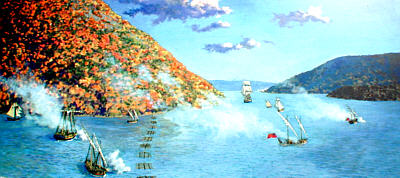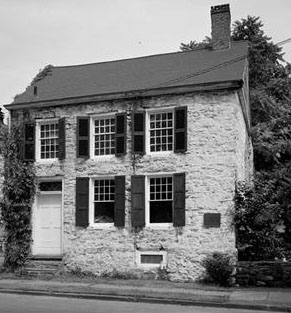
Iron Mountain City
“is situated on the western bank of the Mississippi river 80 miles below St. Louis – 100 miles above the mouth of the Ohio River and 40 miles east of the Iron Mountain and Missouri City – the Iron Mountain and Mississippi Rail Road terminates at this place – this Rail Road will at no distant day be the eastern termination of the great Missouri Rail Roads – running many hundred miles in to the interior of the country and commanding a trade of a territory equal in extent to the Eastern and Middle States” – (there follows the same rules & regulations as in Missouri City, with an appropriate number of public buildings – parks &c. beautifully engraved and painted)
Signed J.L. Vandoran
Henry Pease Proprietors
This swindling affair – this wholesale robbery happily fell through from the fact that Vandoran aimed to swindle his associates as well as the public – the company offered him 100,000 dollars for his interest but he refused to withdraw for less than half a million – this swindling scoundrel was too good the hypocrite to admit a gaming office or a drawn shop within forty miles of the city in which he was to dwell – his refined nature could not endure the smell of soap or glue – his eyes would roll up with pious horror at the idea of a sin being committed in the presence of his paradise and yet he could cheat a poor man out of his last dollar – delude numbers with utter ruin by selling them a worthless piece of ground that he had never paid for – he could give to Asylums, Churches &c. land that belonged to other people – pocket the money of his unfortunate dupes and then go to Church – make damnable faces and thank God he was better than other people – the brothers of both Vandoran and Pease were Presbyterian preachers and the partners were models of Piety and Virtue – It occasioned a smile when I read the laws of the City already made – a city laid out for at least fifty thousand inhabitants – to see Vandoran Mayor Alderman and Common Council dictating rules and regulations like a Monarch – I have seen the site – the City of Missouri – fourteen or fifteen log huts – one furnace – are all in reality – the rest existed but in the imaginations of the projector and on their painted canvass – for 1500 hands I found 20 – no Colleges – no Asylums – no avenues – no nothing but the ruin those villains made – of the subsequent history of Vandoran I gleamed some particulars – my informant said that tired of building cities he now destroyed them – he was engaged in the oil business and had been burned out three times – once in New Orleans – in Cincinnati and in N York City – the last time occasioned the great fire in N York about two years since –
Ten or twelve years have passed since this affair started – even yet there is neither rail road – canal or even a turnpike road in the State – the present company have a charter equal in many respects to Vandorans – but they have commenced at the right end – by working first – by turning this great mass of Iron into use – and being of real benefit to the people and the Country –
The rain snow and sleet still play a tattoo upon our windows – after finishing the interesting document with help of a bass viol and three flutes I managed to drive away harmony and the blues till dark at which time our prospects are
1st A return without accomplishing the object of our journey
2nd Through snow a foot deep at least
3rd With a cutting North West wind in our teeth – driving the drift snow and sleet through us – freezing our blood
4th or staying another day in this abominable place
The least of these is sufficient to make any man feel vicious – and feeling at present particularly so – here goes at any they I can find fault with
1st the Weather – which is the essence of all that is disagreeable and unpleasant in the winter season
2nd the Roads – which are muddy, rough, crooked and running continually in the wrong direction
3rd Our Wood – sappy and worthless – fizzing – spitting and spluttering in the stove perfectly innocent of flame or heat
4th Our Tallow Candle – had we two we would be in total darkness
5th Our Fare – which I will attempt to analyze separately
Coffee! 20 parts water – 1 lb. of burned sawdust – 1 of maple sugar – 1 of sour cream which floated on the mixture like drops of tallow on a glass of water
Bread: Composed intirely from appearance, weight and taste; of Iron ore from the adjacent mountain and vinegar – the mixture to be perfect was but half baked
Smoked Beef – stewed in flour and water
Corned Beef – as Red as fire or the landladys face which is the same thing
Butter Strong enough to draw a hog through a stone fence – and certain mysterious compositions called by the family (in courtesy I presume) Cakes – The Lord only knows what they were – Opposite at the table sits the fiery face with an expression that plainly tells it would be unsafe to offend – next to her is her son’s wife – a “Sacker” newly wed – then came the daughters of the house five or six in number – hanging between good looks and the reverse like (illegible) between Heaven and Earth – four or five sons fill up the table – this family are from the East and the dupes of Vandoran – they are connected with “Pease” and say he was drawn into the business by Vandoran – last of all the bed to which I am about to enter a second time which is the best of the arrangements but rather sparing in cover – were it half as heavy as the landladys bread on our stomacks we could not complain of it – I hope for the sake of all that tomorrow will be a fine day








